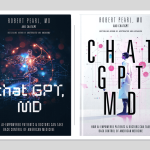I had the privilege to present the keynote address at the Syrian American Medical Society’s 7th National Symposium in Orlando on February 17.
Founded in 2007, SAMS is a global medical relief organization providing excellent medical care to patients in need in Syria, Jordan, Lebanon, Greece, Ukraine, and Turkey. Its “mission is dedicated to delivering life-saving services, revitalizing health systems during crises, and promoting medical education via a network of humanitarians in Syria, the US, and beyond.”
The program focused on the vital role of leaders in making improvements a reality. The title of my talk was The Future of American Healthcare: The Role Leadership Will Play.
I reviewed the problems of today, including quality that lags over a dozen other industrialized nations, access that is becoming more difficult and cost that has made healthcare coverage unaffordable for half of the nations. The solution I proposed is to move from a fragmented delivery system to one that is integrated and coordinated, which will require leaders to create medical groups, and a shift in reimbursement from fee-for-service to capitation (a single payment to clinicians to provide all of the medical care a defined population of patients requires).
These recommended changes are not new. In fact, they can be traced back almost a century to the Committee on the Cost of Medical Care, which issued a presidential report calling for integration and capitation in healthcare in 1934. What’s different now—and what makes these calls to action possible—is a new and powerful tool.
Generative AI, including systems like ChatGPT, is capable of helping people create sophisticated text, images, music, and even computer code. Unlike traditional AI, which analyzes and provides answers by comparing data sets (mammograms showing cancer and ones with benign disease), generative AI is trained on the totality of information available on the internet and other available sources (textbooks, journal articles, CDC recommendations). It then applies millions of parameters (general instructions on analysis) and thereby generates coherent, and contextually relevant content to any question that is posed.
The implications for medicine are profound, and they are the subject of my upcoming book ChatGPT, MD.
At the symposium, I reviewed the three different types of AI (from rule-based to narrow to generative), illustrating how this most-modern technology provides expertise, not merely knowledge. Already, people who have no background in art, music or software development can create rich, complex paintings, songs and even websites with incredible expertise, thanks to ChatGPT and similar tools.
And while there’s still much left to improve in terms of GenAI’s accuracy, reliability and processing power, it’s important to keep in mind that these systems are on an exponential glide path, which will render these tools 30-times more powerful over the next five years (and 1,000 times more powerful in 10 years).
Technology, however, won’t be enough to save American medicine. System-wide change and skilled leadership will be equally essential, and I commended the visionary leadership of SAMS for anticipating these needs in the future.
Finally, I reviewed the “A to G leadership model,” which will be found in the concluding pages of ChatGPT, MD. It offers a series of steps for healthcare leaders seeking to drive improved clinical outcomes and make major improvements in the efficiency and effectiveness of medical care.
When I finished my remarks, the mic lines were long as attendees presented both insightful perspectives and asked sophisticated questions. I was asked about the current federal attempts at legislating “pay-for-value,” about opportunities for generative AI to support those efforts, the challenges of security, privacy and bias in AI, and the risks that insurers and hospitals will be unwilling to share leadership with doctors.
I don’t remember another audience demonstrating a level of knowledge as sophisticated as the members of SAMS. I would like to thank the multiple individuals who organized this impressive conference and applaud their commitment to seeing that all patients in other nations are able to obtain compassionate, dignified, high quality medical care.
A partial list includes Dr. Abdulfatah Elshaar, the SAMS Foundation Chair; Dr. Nidal El-Wiher and Dr. Ahmed Al-Hazzouri, the conference co-chairs; and Ala’a Elshaar, Salam Abdulrazzak and Dany Hanbouri, conference coordinators.
* * *
Dr. Robert Pearl is the former CEO of The Permanente Medical Group, the nation’s largest physician group. He’s a Forbes contributor, bestselling author, Stanford University professor, and host of two healthcare podcasts. Pearl’s upcoming book, “ChatGPT, MD,” will be available for purchase this spring. All profits from Pearl’s books go to Doctors Without Borders.






